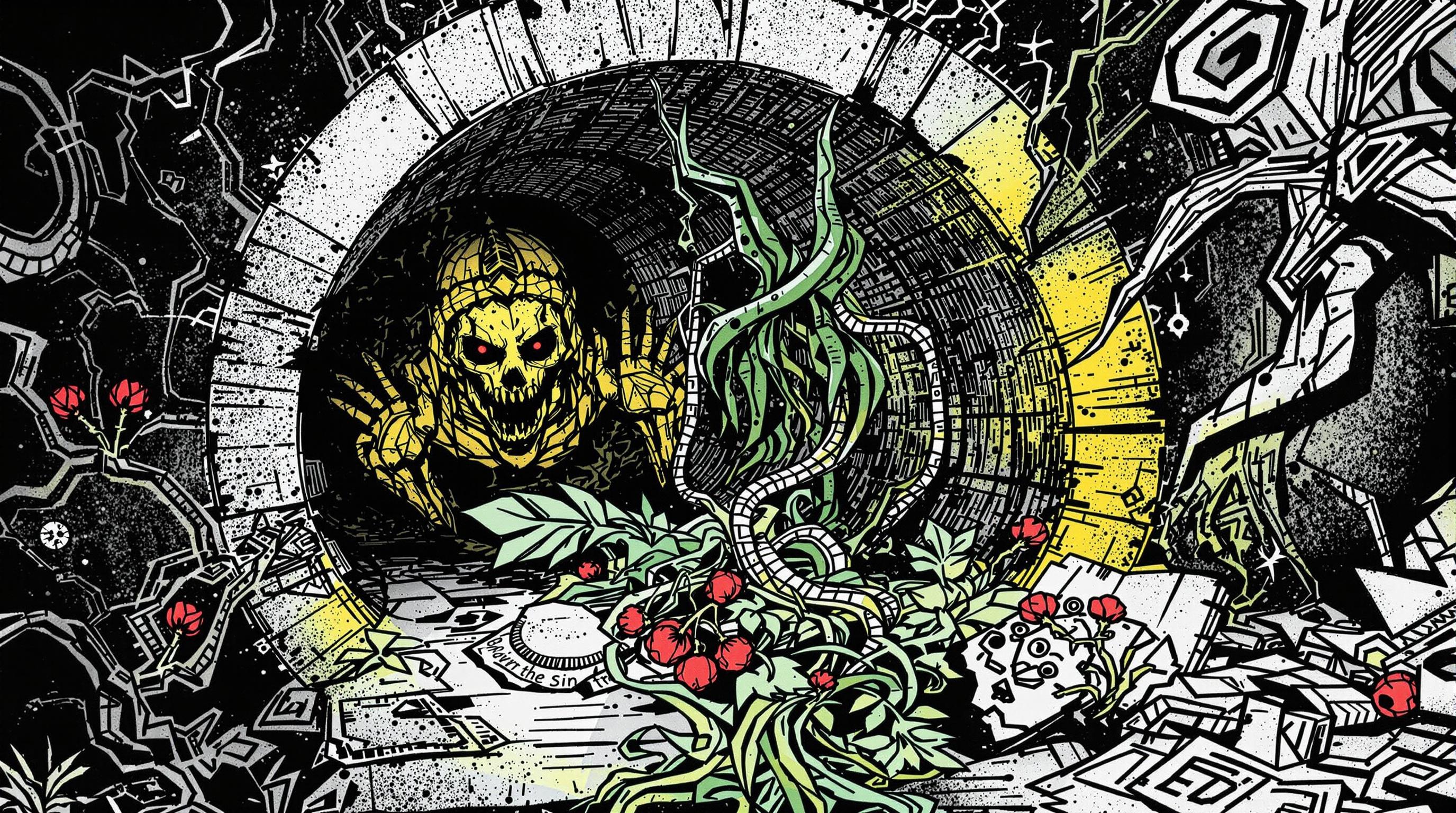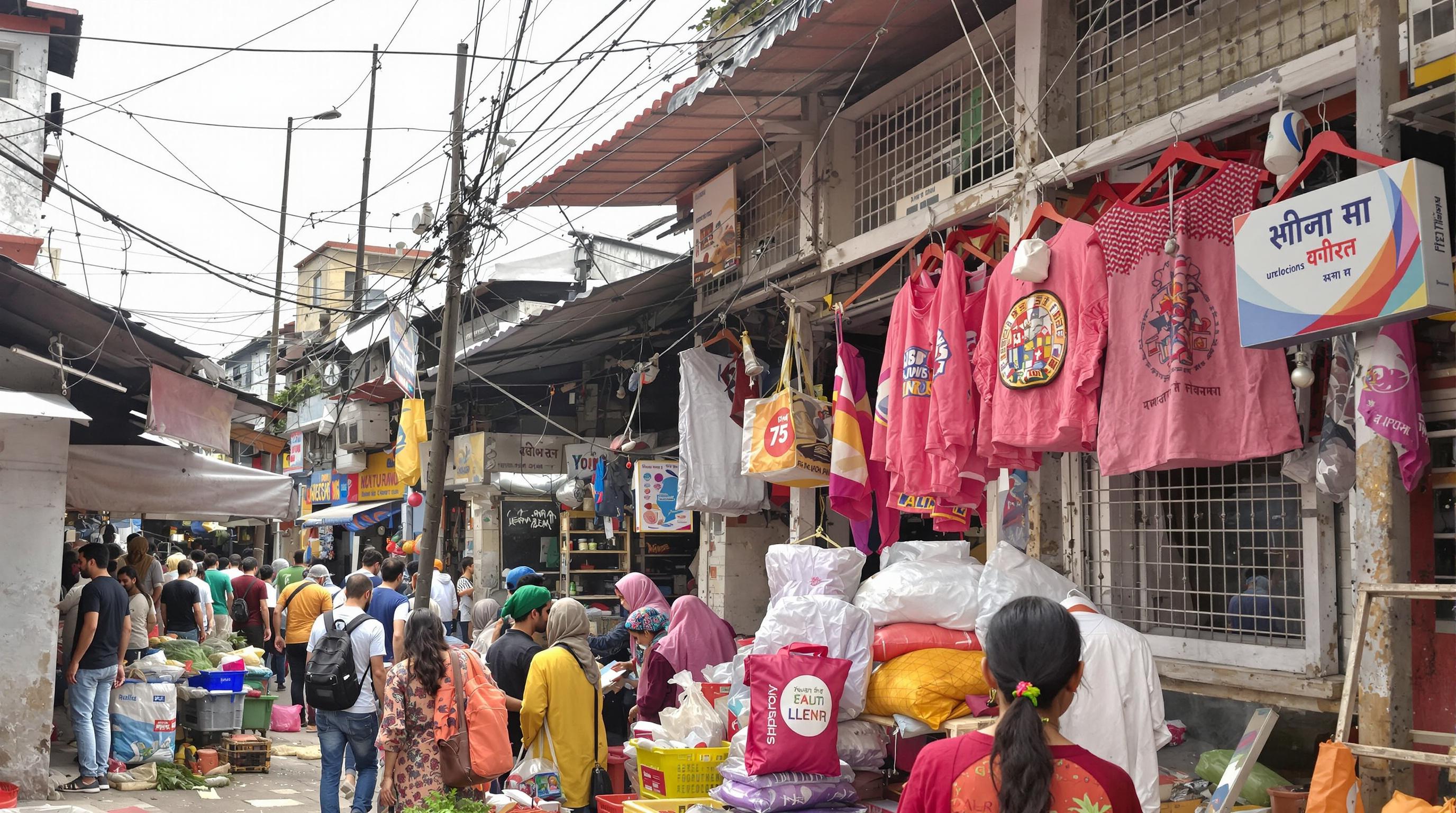Related Articles
- The Influence of Urban Legends: How Folklore Shapes Investor Behavior in Today's Financial Landscape
- The Role of Personal Narratives: How Your Story Shapes Investment Choices and Risk Tolerance
- The Ripple Effect: How Social Media Influencers Steer Investor Sentiment in Unexpected Ways
- Beneath the Surface: Investigating the Silent Influence of Underground Economies on Legitimate Market Trends
- Navigating the Bizarre: The Influence of Esotericism on Modern Investment Strategies and Market Speculation
- Rethinking Risk: The Surprising Link Between Urban Architecture and Financial Instability in Emerging Markets
Beneath the Surface: Investigating the Silent Influence of Underground Economies on Legitimate Market Trends
Beneath the Surface: Investigating the Silent Influence of Underground Economies on Legitimate Market Trends
Beneath the surface of our visible economy lies a complex web of underground activities that silently shape legitimate market trends. This article delves into the nuances of underground economies, their impact on legitimate markets, and the intricate relationships that bind them.
The Shadowy World of Underground Economies
The term "underground economy" refers to all economic activities that are not regulated by the government or covered by the formal economic system. This can encompass everything from street vendors and cash-based businesses to illicit activities like drug trafficking and human smuggling. According to a report by the International Labour Organization, about 60% of the world's workers are in informal employment, which highlights the substantial proportion of economic activity that occurs outside formal channels (ILO, 2018).
The Influence on Supply and Demand
One of the most significant impacts of underground economies is their influence on supply and demand dynamics. For instance, when a popular new product enters the market, high demand can naturally create an opportunity for illicit markets to flourish. Think of the rampant counterfeiting of luxury brands — when demand for items such as designer handbags surges, underground manufacturers often step in to satisfy that need with cheaper replicas, which, despite being illegal, offer consumers an affordable alternative.
Statistics You Didn't Expect
Did you know that the global trade in counterfeit goods is estimated to reach $1.82 trillion by 2020? This staggering number not only sheds light on the vast reach of underground economies but also raises questions about the impact of these activities on legitimate brands. A case study from the OECD mentioned that counterfeit products caused over $400 billion in losses to authentic brands in 2016 (OECD, 2017). This situation forces legitimate businesses to adapt their strategies, driving up prices or implementing new marketing campaigns just to maintain their market share.
Real-Life Case Study: The Impact of Drug Markets
Let's take a detour into the world of illegal drug trade. A 2019 study published in the journal ‘PLoS ONE’ found that areas with higher rates of illegal drug sales experienced price inflation in housing markets. As drug sales thrive in certain regions, they can create a distortion in local economies, causing legitimate businesses to either flourish due to increased foot traffic or suffer due to the disreputable activities associated with drug markets (Muck et al., 2019).
Who's Really Winning? The Casual Consumer
So, who really benefits from these underground economies? Often, it's the casual consumer seeking lower prices and greater convenience. Imagine a teenager looking for the latest gaming console. With retail prices at an all-time high due to global shortages, many turn to the black market to get their hands on what they want quicker and cheaper. Younger consumers, especially, find themselves in a dilemma: willing to risk engaging with underground vendors for the sake of savings. The allure of ‘cheap’ can often yield high costs — for both the buyer and the larger market.
Conversations About Legitimacy
It's crucial to have a conversation about what counts as "legitimate." The blurred lines between legal and illegal can make it challenging for consumers to understand the direct impact of their purchases. For instance, a casual buyer may not realize that their decision to purchase counterfeit goods doesn't just fuel illegal operations; it can also undermine the workers who produce legitimate goods. A more transparent understanding of this relationship can cultivate a more conscious consumer culture.
Humor Me: The Ironic Twist in Regulation
And let’s not forget the ironic twist—regulations are intended to protect the consumer and uphold market integrity. Yet, by establishing too many barriers to entry for small businesses, these regulations can inadvertently increase the attractiveness of underground markets. So, if you’re a budding entrepreneur struggling under a mountain of regulations, just remember the words of George Carlin: “It's a big club, and you ain't in it.”
The Global Perspective
On a global scale, the underground economy's influence is felt in ways that we might not have considered. In developing nations, informal economies often play a vital role in providing livelihoods. According to the World Bank, informal economies in these regions can account for up to 70% of the total employment and 50% of GDP in some countries (World Bank, 2020). In some ways, these economies act as safety nets, catching those who fall through the cracks of formal employment.
Consumer Choices: A Double-Edged Sword
This situation presents a paradox for consumers. The desire for more affordable products can lead to supporting underground markets, yet this support can erode the foundations of legitimate businesses and workers' rights. Therefore, savvy consumers must ask themselves: Is saving a few dollars worth the possible repercussions on our economy and community?
Awareness and Education: The Key to a Healthier Economy
Raising awareness about how underground economies influence market trends may empower consumers to make informed choices. Educational campaigns could enlighten young adults on recognizing counterfeit products, understanding the significance of fair labor practices, and acknowledging their role in supporting local businesses.
Regulatory Approaches: Striking a Balance
Regulation is a powerful tool for shaping market dynamics but must be implemented thoughtfully to avoid pushing activities underground. As governments face this challenge, a blend of strict enforcement of existing laws, alongside supportive policies for small businesses, may yield favorable outcomes. In countries like Japan, for instance, local governments collaborate with informal markets to help transition these sellers into formalized businesses, ensuring that everyone can benefit from legitimate market participation.
Legalizing Certain Practices: An Interesting Proposition
Interestingly, some experts propose legalizing certain facets of currently underground activities to rein in their adverse effects. For example, the legalization of cannabis in various parts of the United States has resulted in lowered illegal sales and increased tax revenue for law enforcement and social programs. While it sounds counterintuitive, the regulated embrace of certain underground economies can turn a potential threat into an opportunity for sustainable growth.
Conclusion: The Invisible Hand of the Underground
As we navigate the complexities of today’s market, recognizing the silent influence of underground economies is essential. The interplay between legitimate markets and their shadowy counterparts drives consumer behavior and market trends in profound ways. By shedding light on these interactions, we can foster a more informed society, making choices that promote economic integrity without sacrificing affordability and accessibility. It's about time we all take a closer look beneath the surface — the truth is often more complex and layered than it appears at first glance.
In a world where consumer power reigns, let’s harness that influence for a shared future — both above and below the surface.




